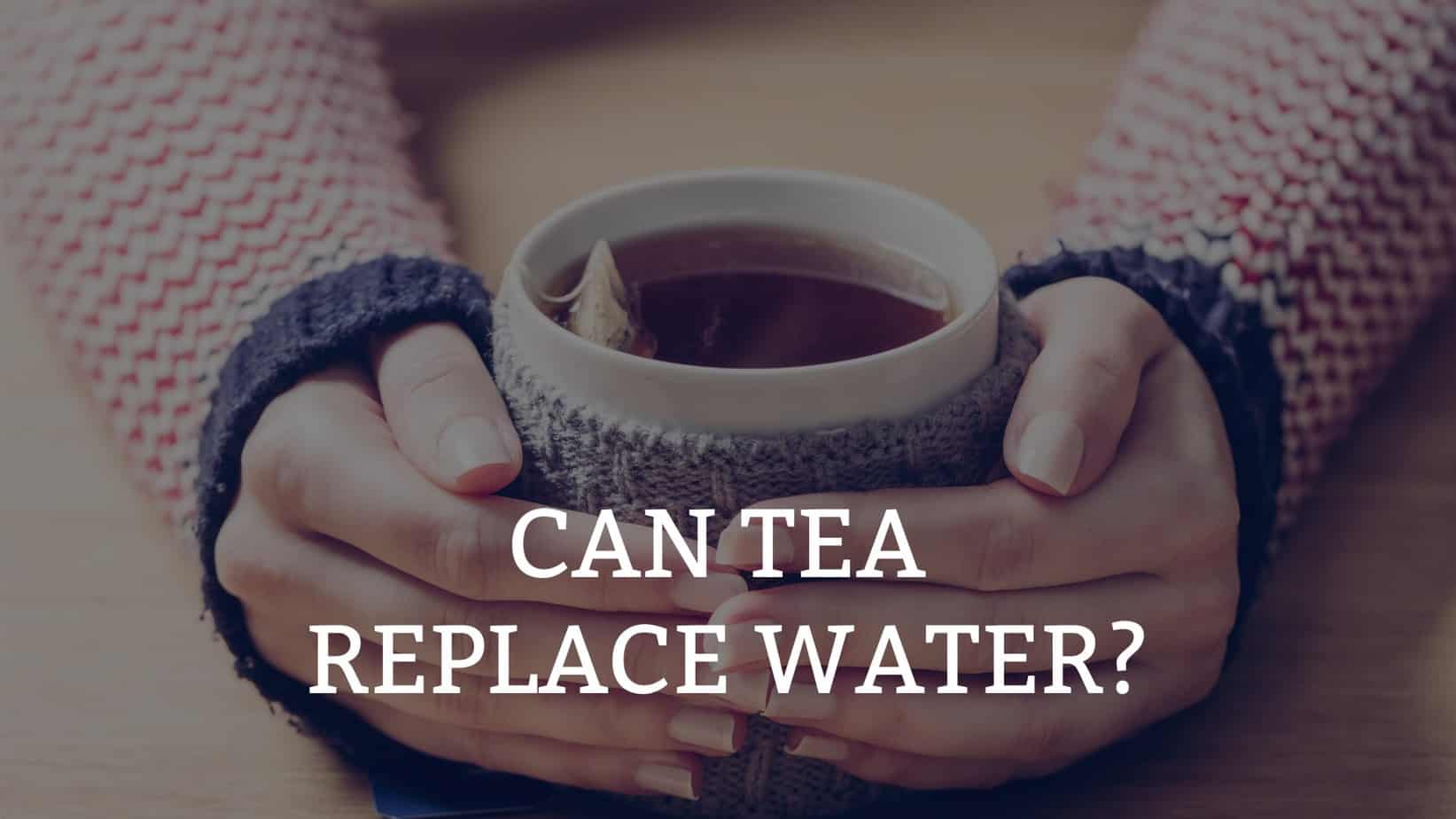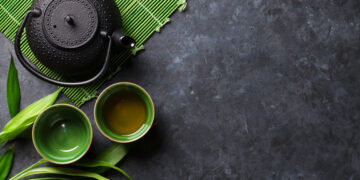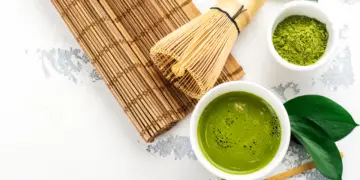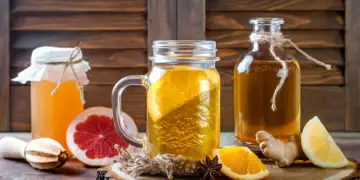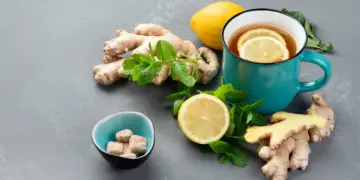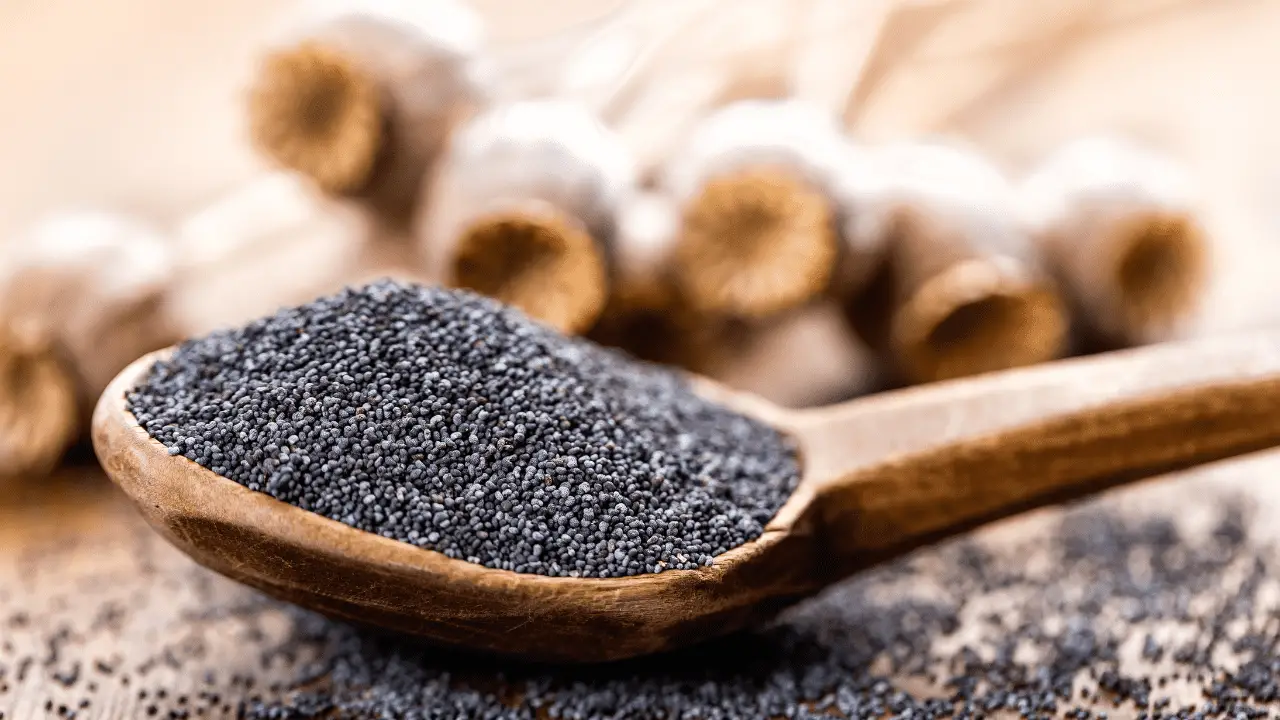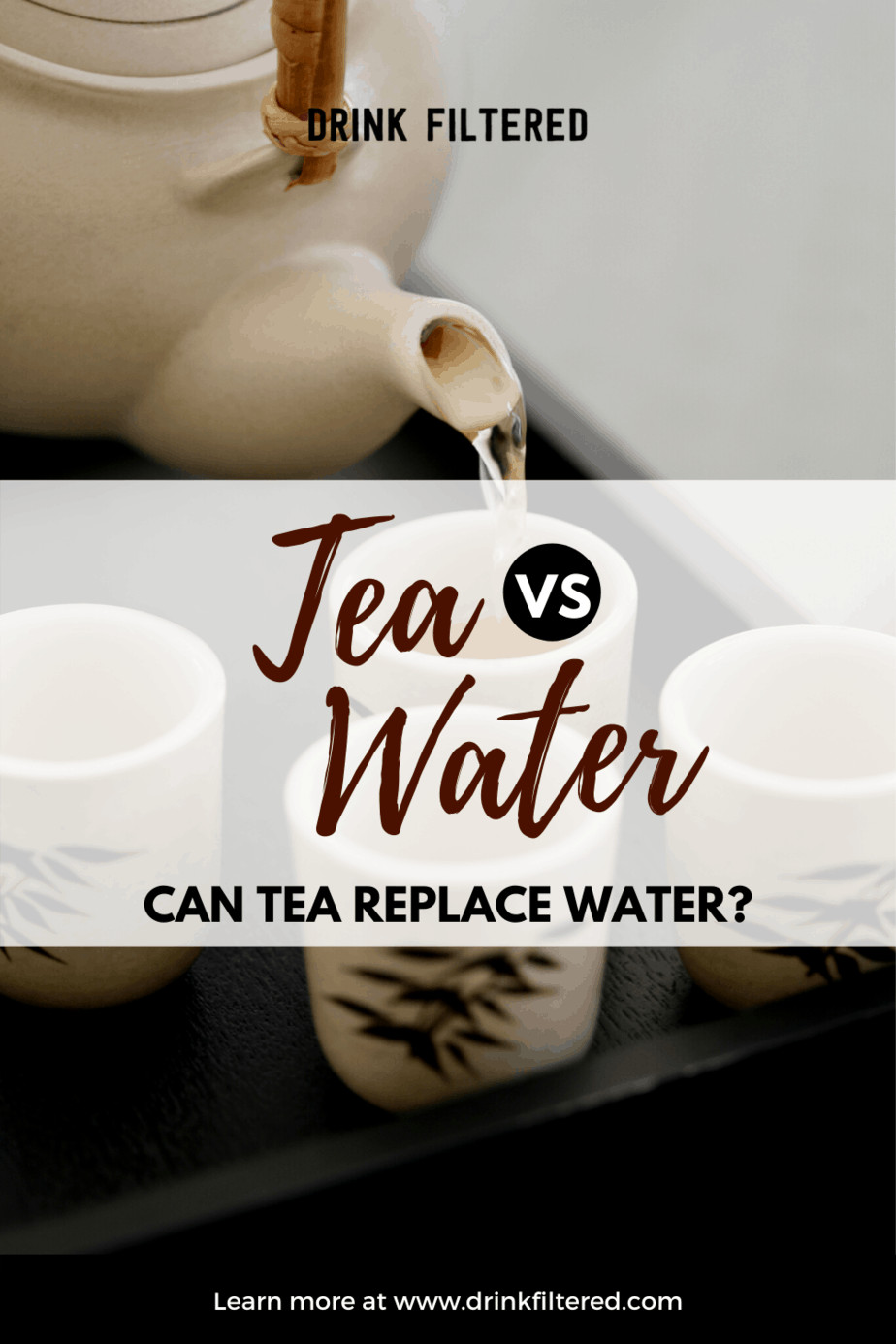So you are here and we glad! Maybe it is because you read somewhere that tea is healthier than water, and now you’re considering replacing water for a welcome change. But before you do, you might be wondering what the differences between tea and water are…Should you replace water completely? Is this radical? Is this advised? We did the research and the answer might surprise you…
What Is Tea?
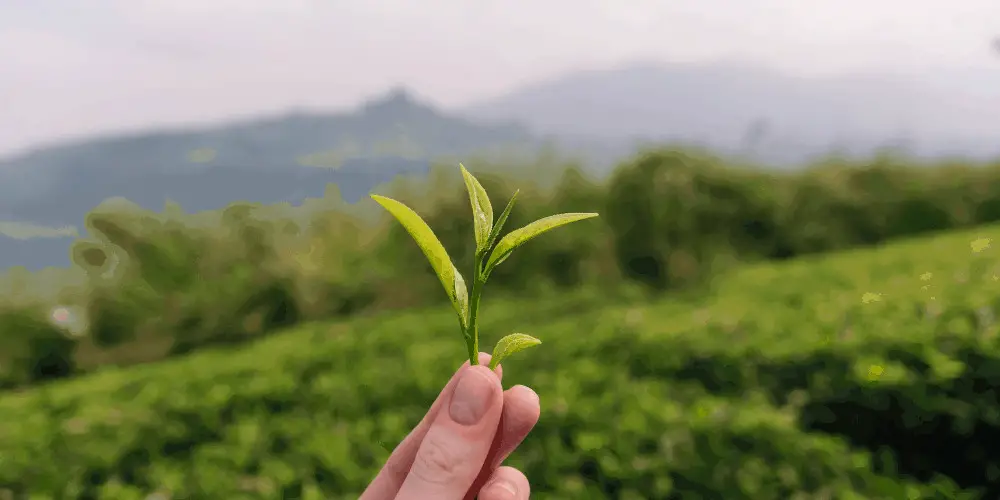
Tea is a beverage that is prepared by brewing the leaves of a shrub called Camellia sinensis. While there might be different types of tea which often have differences in appearance and aroma, but they all come from the same shrub: Camellia Sinensis.
Tea is said to be discovered accidentally in China by emperor Shen Nung in 2732 BC when tea leaves accidentally fell into his boiling water. He was intrigued by its amazing scent and ended up tasting it. And from there, tea consumption was and has been a part of Southeast Asia’s culture ever since!
However, with time it was soon realized that a cup of tea was more than just a casual beverage with a pleasant scent, but a delicious beverage jam-packed with healthy components too.
For the purposes of this article, “tea” refers to the drink prepared by you at home using a tea bag or loose tea leaves rather than the commercially produced, likely overly-sweetened tea . Those are typically full of artificial preservatives and flavors.
Drinking Tea Instead Of Water
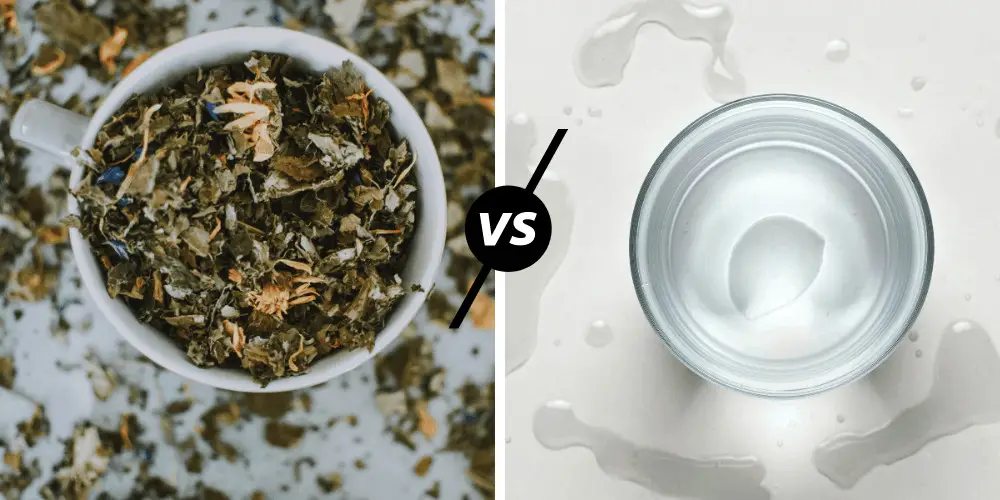
Speaking from a hydration point of view, you can count your tea intake in your total water intake.
So, if you take 4 cups of tea (250 ml each), you will actually consume 1L, half of your required daily intake of water.
Nutritionally, tea is superior to water because it contains many health benefits.
Some of these amazing benefits include:
- Studies have shown that drinking tea can help improve your mood and attention span.
- Tea can help improve memory and cognitive function.
- Tea is well known for its antioxidant activity, which provides protection against inflammation and cancer-producing free radicals, thus preventing cancer. Some studies also suggest that it could possibly decrease the recurrence and metastasis of cancer.
- Tea is proven to help with anxiety and depression.
- Some studies have suggested that tea can help with weight loss to some extent.
- Tea can be great for your oral health as it reduces the growth of harmful bacteria, reducing inflammation, and preventing teeth resorption.
- Tea can also helps prevent osteoporosis and reduces the risk of heart disease and type 2 diabetes.
But can Tea replace water?
Your total daily water needs depend on your weight and the total amount of fluid losses you have had (through sweat, urination, etc). The general recommendation, however, is that you drink at least 8 glasses of water (2 liters) each day.
Now, should you be drinking 2 liters of tea each day? No, you shouldn’t.
Drinking tea every day is not a problem, but drinking too much can be.
Tea is rich in caffeine, which makes it a stimulant. A moderate amount for some is more than enough to cause heart palpitations and restlessness even in those without underlying anxiety.
Side Effects of Drinking Too Much Tea?
1. It Can Cause or Exaggerate Restlessness and Anxiety
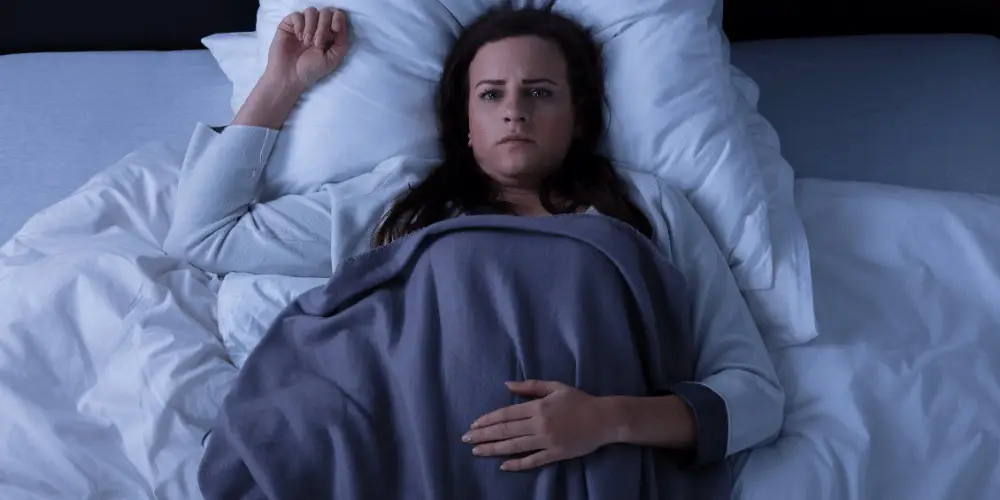
When you consume tea at a moderate dose it can help you calm down, but too much of it increases the caffeine which will do the quite the opposite.
If you suffer from anxiety or if you are caffeine sensitive, drinking too much is not a great idea. This was proven by a 2005 study conducted at Cambridge University. In fact, a high intake of tea will cause more anxiety especially if you have an underlying anxiety or panic disorder.
Children are particularly sensitive to caffeine, and studies have found that caffeine (coming from any source) is one of the major causes of stress, anxiety, and depression in school-going children today. Note that it is generally not recommended that children under 12 have more than 1 cup of caffeinated drink per day, if any.
So, if you start to feel a bit agitated for no reason after consuming one too many cups, it’s an indication that you should stop.
2. It Can Cause Iron-Deficiency Anemia

A study conducted in 2017 showed that excessive consumption of tea can lead to iron deficiency anemia. Tannin, one of the many components of tea binds with the iron to form insoluble complexes that the body is unable to absorb. The conversion of iron into this complex, reduces the bio-availability of iron thereby resulting in iron-deficiency anemia over time.
This is bad news for vegans in particular, because tannin’s form complexes with iron that is derived from plant sources but not animal sources. This puts vegans and vegetarians, who only consume iron from plant sources at a higher risk of iron-deficiency especially if they are heavy tea drinkers.
However, carnivores are not completely exempt as green leafy vegetables are a significant source of the natural iron we take on a daily basis.
3. Sleep Disturbance
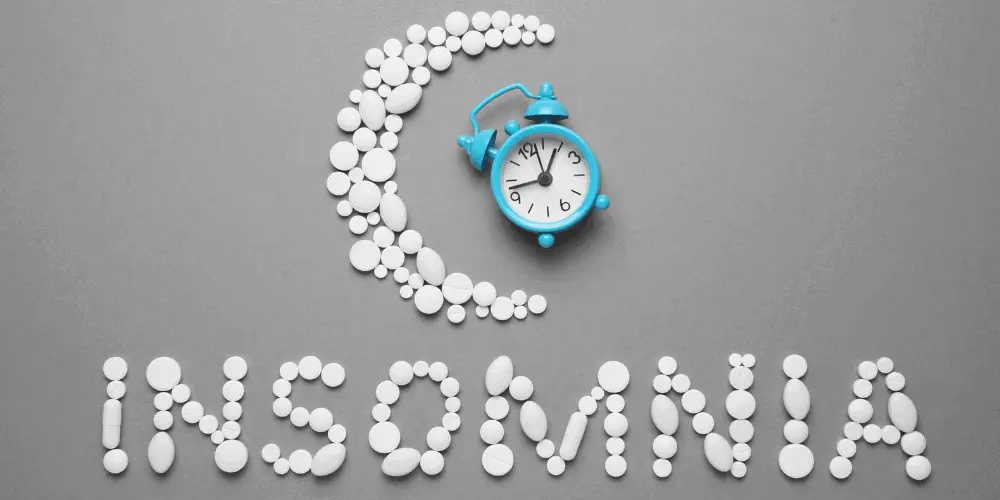
Another negative side effect is that caffeine consumption even 6 hours prior to your bedtime can cause significant sleep disruption.
Prolonged sleep deprivation can lead to many short-term and long-term health issues, including poor memory, focus and concentration, diabetes, heart disease, reproductive issues, anxiety, depression, and even cancer. Every part of your body can be affected when you don’t get enough sleep.
4. Caffeine Dependence
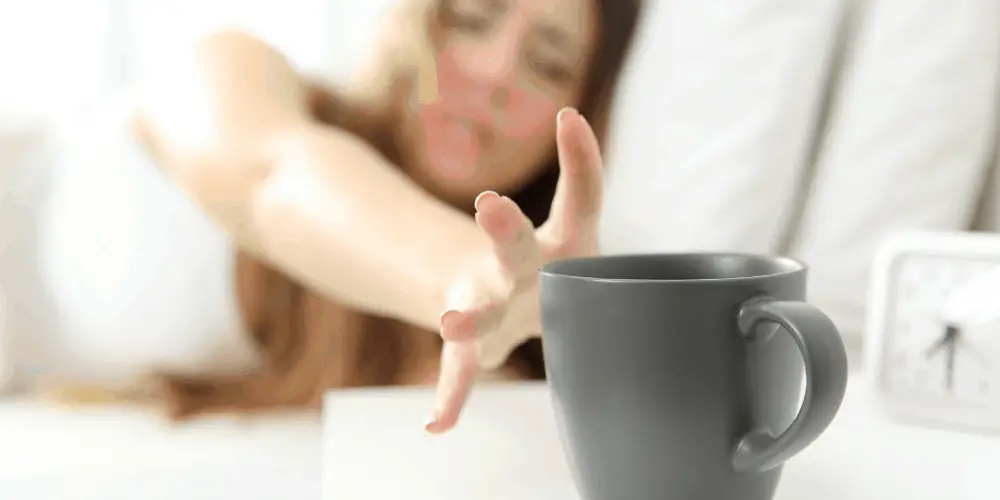
Whether you get this caffeine from a cup of tea or a cup of coffee, caffeine dependence syndrome is a real thing. Just like other stimulants, you can become addicted to caffeine. And where there is an addiction, there are withdrawal symptoms.
People with caffeine dependence experience withdrawal symptoms when they don’t deliver their daily required amount of caffeine (which can vary) to their system. Some of the common symptoms of caffeine withdrawal are headaches, anxiety, cravings, difficulty concentrating, fatigue, irritability, and low mood.
5. Gastric Distress
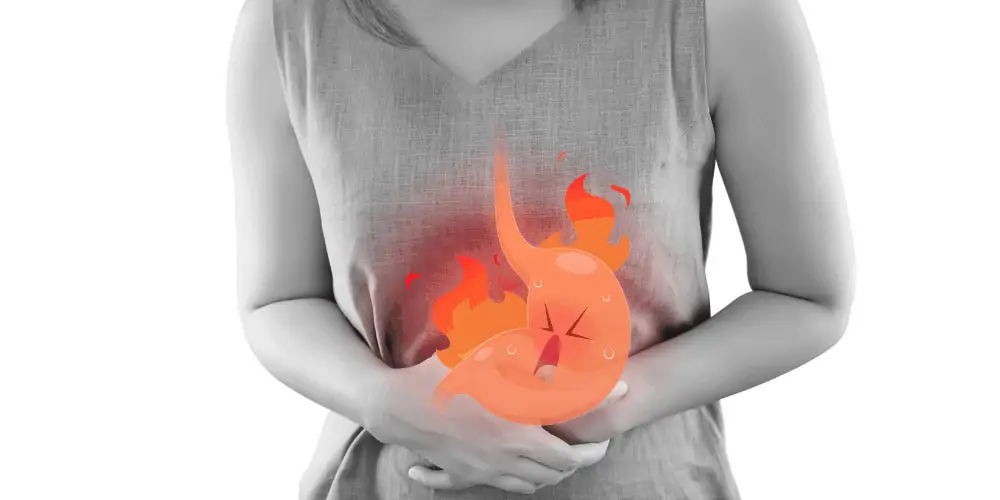
Excessive consumption of tea can also lead to heartburn.
Drinking too much causes your lower esophageal sphincter (LES) to relax. Your LES basically prevents the back flow of stomach content into the esophagus. But when it is relaxed, the gastric content can back flow and cause heartburn.
It also increases the total acid secretion by the stomach, thereby worsening the heartburn even further.
What About Decaffeinated Tea?

It’s a myth that decaffeinated tea does not contain any caffeine.
It is not possible to remove caffeine completely. So, remember that changing to decaffeinated tea will still contain caffeine albeit in lesser amounts.
The side effects of caffeine can still occur with decaffeinated tea when consumed in excessive amounts; however, it is logical to assume that it will take a much larger dose for it to cause the above-mentioned side effects.
What About Non-Caffeinated Herbal Teas?
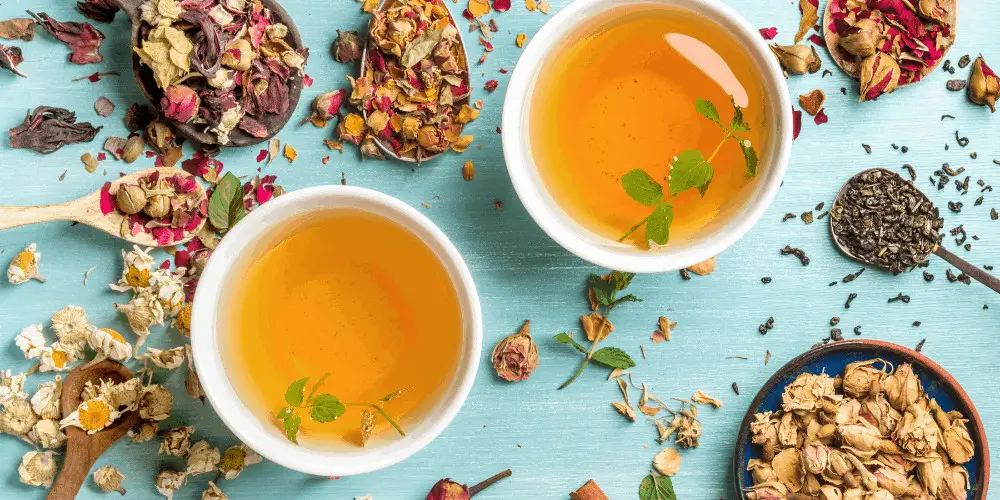
Herbal teas are technically not teas as they are not derived from the tea shrub. Non-caffeinated herbal teas are made up of other herbs often times lack the caffeine kick as regular teas. You would think that since they are non-caffeinated and herbal, you can consume as much as you want. Unfortunately, this is not quite the case.
The reality is that herbal teas may come with their own set of side effects. The side effects varies depending upon the particular herb that it contains.
For example, chamomile can cause allergic reactions, and shouldn’t be consumed by pregnant women as it can cause uterine contractions. It also has a blood-thinning effect, so if you are on blood-thinning medications, you should avoid chamomile completely.
Peppermint, on the other hand, can lower testosterone levels and affect fertility in men when consumed in a high amount.
Herbal teas may also be exposed to certain chemicals and flavoring agents while they are being processed. These substances, although rarely, may also cause allergic reactions.
Here’s What You Should Do Instead
Even though tea is an incredible beverage with many benefits, excessive intake is not recommended.
Apart from the effects that caffeine can have on your body, another thing to keep in mind is that certain components of tea are known to cause drug interactions with drugs like rosuvastatin (a drug used in cardiovascular diseases), sildenafil (commonly known as Viagra), and tacrolimus (used in dermatological conditions mostly, like eczema).
So if you are on any of these drugs currently, you might want to avoid this beverage due to the risk of drug interactions and reduced efficacy of the medication.
Instead of completely replacing water with tea, we recommend keeping both in your daily routine. Too much is not good, but a moderate amount will give you great benefits that you will not want to miss out on.
To maintain a balance, keep a maximum of three to four cups of tea per day in your diet. For the rest, the healthiest option is to just drink water.
You can get a fruit infusion bottle, cut some fresh fruits like strawberries, lemon, and cucumbers and combine it with water. The juices of these fruits will flavor the water naturally.
You can also go for natural coconut water (not the heavily processed and sweetened ones).
Remember, getting your daily requirement of fluids from different sources will keep your liquid intake interesting!

